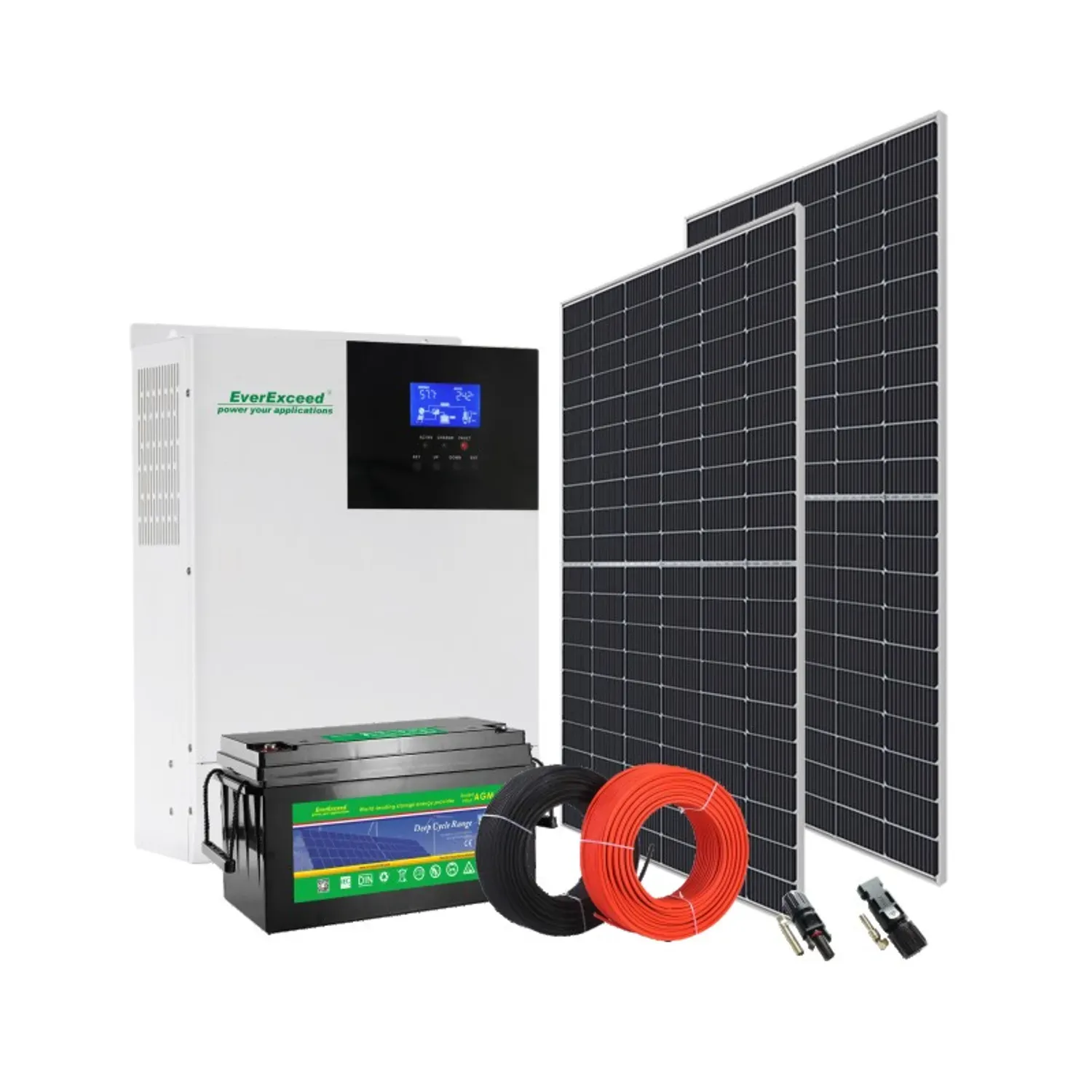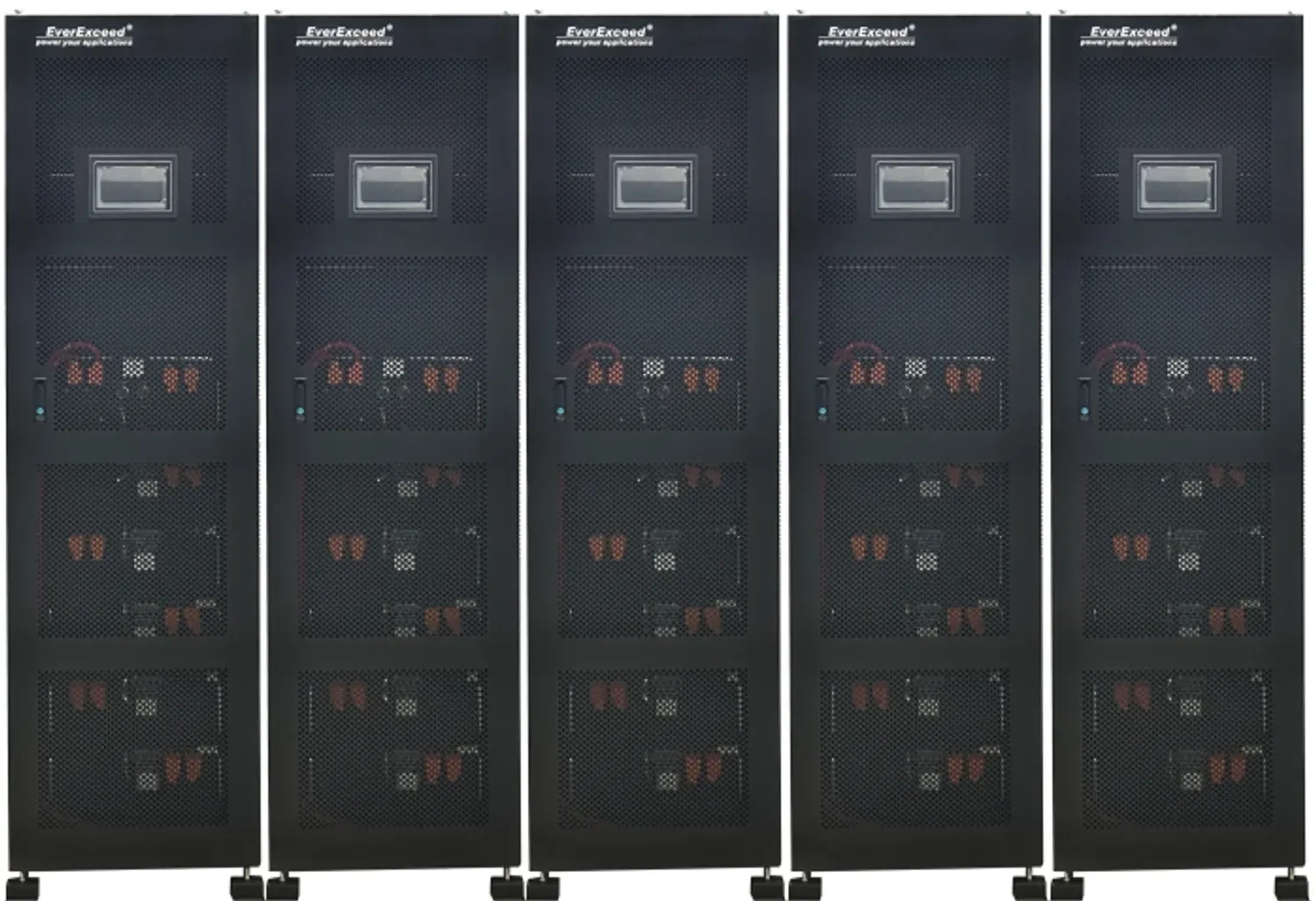
Get a Quote
What Is the Difference Between UPS and Solar Inverters?
Understanding the nuances of these systems is essential for making informed decisions regarding energy management and backup power solutions. Let's delve deeper into the functionalities and distinctions between solar inverters and UPS systems.
Understanding Solar Inverters
Definition and Primary Functionality
Solar inverters serve as the essential bridge between solar panels and electrical appliances, converting the direct current (DC) electricity generated by solar panels into the alternating current (AC) electricity used in homes and businesses. They are pivotal in unlocking the potential of solar energy by making it usable for various applications.
Types of Solar Inverters
Solar inverters come in several types, each tailored to specific system sizes and efficiency requirements. These include string inverters, microinverters, and power optimizers. String inverters are commonly used in larger installations, while microinverters are preferred for smaller setups due to their individual panel-level optimization. Power optimizers maximize energy production by optimizing the performance of each panel in a system.
Features and Technologies
Solar inverters incorporate advanced features and technologies to enhance their performance and safety. One such technology is maximum power point tracking (MPPT), which ensures optimal energy output even in less-than-ideal conditions. Additionally, anti-islanding protection ensures the safety of utility workers by shutting down the system during power outages.
Applications and Integration in Solar Power Systems
Solar inverters play a crucial role in solar power systems, seamlessly integrating with solar panels and other components. They enable the efficient utilization of solar energy for residential, commercial, and utility-scale installations. With remote monitoring capabilities, users can track system performance and address any issues promptly, maximizing the benefits of solar energy.
Exploring UPS Systems
Definition and Primary Purpose
UPS systems, or Uninterruptible Power Supplies, are designed to provide backup power during power outages or fluctuations in the main power supply. They act as a crucial safeguard for critical systems, ensuring uninterrupted operation and preventing data loss or equipment damage.
Types of UPS Systems
UPS systems come in various types, each offering different levels of protection and efficiency. These include offline/standby UPS, line-interactive UPS, and online/double-conversion UPS. The choice of UPS depends on the specific requirements of the application and the criticality of the systems it aims to support.
Features and Components
A typical UPS system comprises a battery bank, an inverter, and a charging mechanism. During normal operation, the UPS charges its batteries and supplies power to connected devices through the inverter. In the event of a power outage, the UPS seamlessly switches to battery power, ensuring uninterrupted and reliable electricity supply to critical systems.
Applications and Importance in Ensuring Reliable Backup Power
UPS systems find their applications in critical systems that cannot tolerate even brief power disruptions, such as data centers, hospitals, and industrial processes. They play a vital role in ensuring continuous operation and preventing potential losses or damages associated with power outages.
Key Differences Between Solar Inverters and UPS Systems
Primary Functions and Focus
Solar inverters primarily focus on converting solar energy captured by panels into usable electricity, facilitating the utilization of renewable energy sources. Conversely, UPS systems are designed to provide backup power during outages or fluctuations in the main power supply, ensuring uninterrupted operation of critical systems.
Power Source and Energy Conversion Processes
Solar inverters rely on solar panels as their primary power source, converting the direct current (DC) electricity generated by these panels into alternating current (AC) electricity. On the other hand, UPS systems are typically connected to the main power supply and utilize batteries as a backup power source. During outages, they convert stored DC power from batteries into AC power to maintain uninterrupted power supply.
Load Capacity and Integration into Systems
Solar inverters are specifically designed to handle the load capacity of the solar power system, which directly depends on the size of the solar panel array. They seamlessly integrate into solar power systems, working in harmony with solar panels and other associated components. In contrast, UPS systems are sized based on the power requirements of the connected devices or systems they support during power outages. They are standalone devices that can be connected to the main power supply and critical devices for backup power support.
Applications and Industries They Serve
Solar inverters are integral components of solar power systems, used to generate electricity from sunlight for residential, commercial, and utility-scale installations. They contribute to reducing dependency on fossil fuels and lowering carbon footprints. Conversely, UPS systems find their applications in critical systems that demand uninterrupted power supply, such as data centers, hospitals, and industrial processes. They safeguard against potential losses or damages associated with power outages, ensuring business continuity and equipment protection.
Importance of Understanding the Distinctions
Making Informed Decisions for Solar Energy Utilization
Understanding the differences between solar inverters and UPS systems empowers individuals and businesses to make informed decisions regarding the installation and management of solar power systems. It allows them to optimize energy production, maximize efficiency, and effectively harness solar energy resources.
Ensuring Reliable Backup Power for Critical Applications
Recognizing the distinctions between solar inverters and UPS systems is crucial for ensuring reliable backup power for critical applications. By selecting the appropriate UPS system tailored to specific needs, businesses can mitigate the risks associated with power outages and safeguard against potential disruptions or losses.
Empowering Users to Choose the Right System for Their Needs
By understanding the nuances of solar inverters and UPS systems, users can choose the right system tailored to their specific requirements and preferences. Whether it's harnessing solar energy for sustainable power generation or ensuring uninterrupted operation of critical systems, having clarity on the distinctions between these two systems enables users to make well-informed choices.
Conclusion
Understanding the differences between solar inverters and UPS systems is crucial for making informed decisions about energy management and backup power solutions. As we strive towards a more sustainable future, harnessing solar energy and implementing reliable backup power solutions become increasingly important.
EverExceed offers a range of UPS systems and Solar System Kits that are designed to meet the diverse needs of individuals and businesses. Their lithium iron phosphate (LiFePO4) batteries provide reliable and efficient backup power solutions for UPS systems and data centers. Specifically engineered to meet the stringent demands of modern data centers, EverExceed's batteries ensure uninterrupted operation, protecting critical equipment and ensuring continuous uptime. Invest in EverExceed today to power your future with clean energy and reliable backup solutions.


